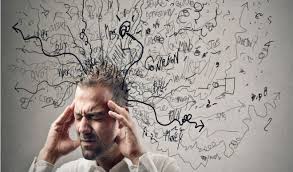Accepting mind wandering and starting over .(mindfulness)
Accepting mind wandering and starting over .(mindfulness)

If find your self feeling feeling frustrated by the mind’s wandering …..,
remind yourself that mind-wandering is simply the doing mode at work; that moment of recognizing it it is itself a moment of mindfulness.
If you find yourself feeling “I should be better at this by now”…
remind yourself to note the should the “should,could,would,ought” thoughts the judging mind and return to the breath.
If you find that you are trying to control the breath…
remind yourself to let breath itself.
“Beginning again doesn’t mean we have made an error. It is the heart of the practice, not deviation from it.”
The moment realize that letting be, Allowing: Giving up control will make good practices toward mindfulness.
There is no particular state we need to achieve when practicing mindfulness of breathing – the idea is simply to allow the experience of each moment to be just as it is without requiring that it be any other way. In other words, to be aware and to settle into and dwell.
Clarity and steadiness of the mind follow as by product of such awareness and from allowing things to be as they are, but if we take momentary calmness as a sign of how much progress, we are merely sowing the seeds of further frustration and despair, for we are letting the doing mind compare our “achievement” with some desired “outcome”. As long as we are trying to get rid of unpleasant thoughts or feelings or trying to achieve peace of mind, we will continue to be frustrated.
The intention in mindfulness practice is not forcibly control by the mind but perceive clearly it’s healthy and harmful patterns. It is to approach our minds and sense of curiosity, openness, and acceptance so that we may see what is here to be discovered, and be with it without so much struggling. In this way, little by little, we begin to release e ourselves from the grip of our old habits of mind. we begin to know what we are doing as we are doing it. We are beginning graceful transition from unawareness to awareness.
And to deny the pain is to deny our own potential. Just as one must suffer physical pain to build stronger bone and muscle, one must suffer emotional pain to develop greater emotional resilience, a stronger sense of self, increased compassion, and a generally happier life.
That’s good—that’s the beginning. I can’t stress this enough, but pain is part of the process. It’s important to feel it. Because if you just chase after highs to cover up the pain, if you continue to indulge in entitlement and delusional positive thinking, if you continue to overindulge in various substances or activities, then you’ll never generate the requisite motivation to actually change.
